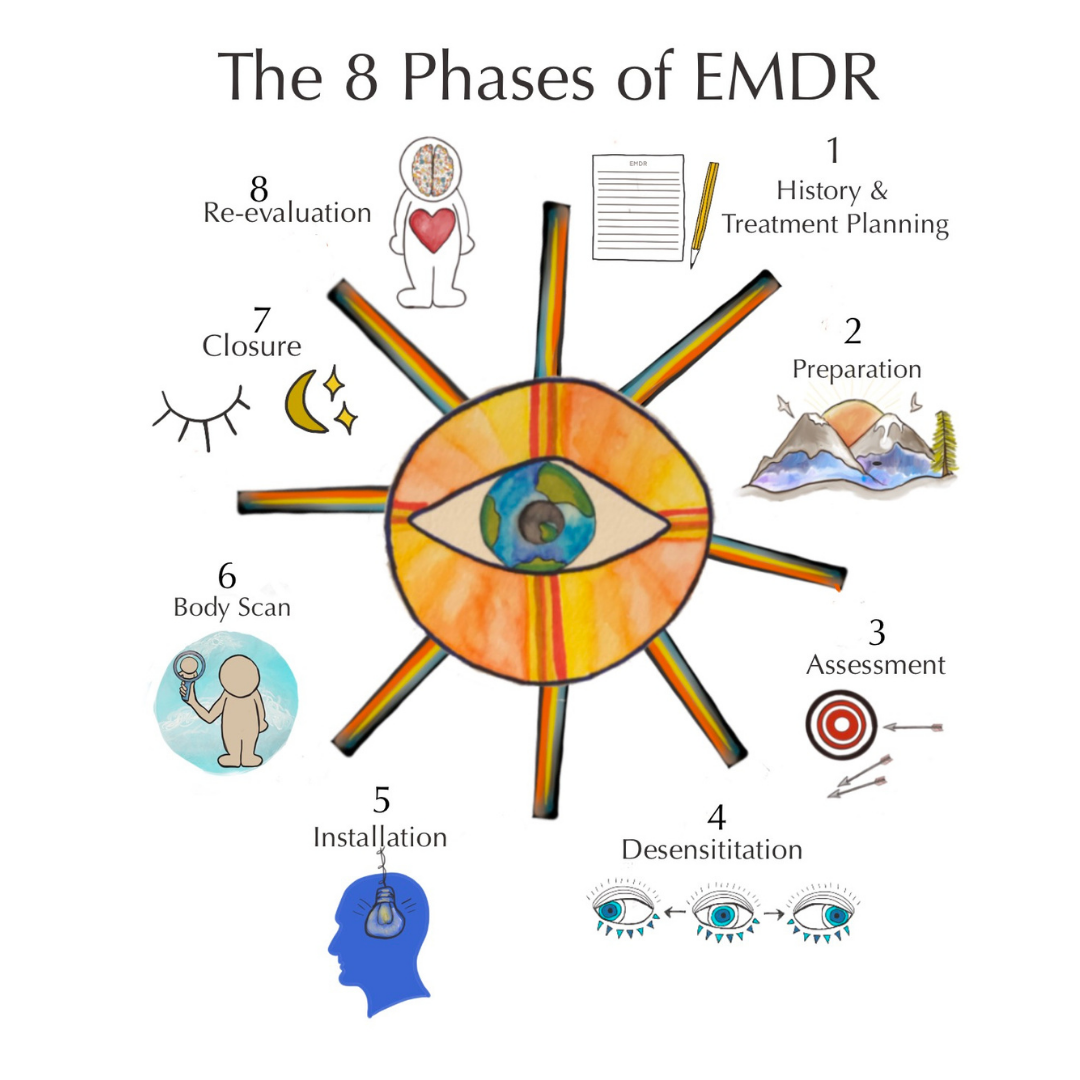Does this sound like your inner-voice? EMDR may be a great way to tackle these!
What is EMDR?
Eye Movement Desensitization and Reprocessing (EMDR) is an evidence based therapy designed to help you process traumatic experiences and reduce distress. Because of the way EMDR is utilized with therapy, it allows you to address past events without fully reliving them.
EMDR is based on the idea that your brain can heal itself, but sometimes distressing events can hinder this process, leading to trauma. Trauma can cause negative beliefs about yourself and the world, disrupt your nervous system, and create overwhelming emotions. EMDR, along with skills to manage distress and regulate your nervous system, can help lessen symptoms linked to unresolved trauma and improve your self-perception.
What is the process of EMDR?
EMDR is an 8-step process that begins with identifying the memory, belief, or experience that you would like us to target. We then work to prepare for processing by giving you tools to emotionally soothe and ground yourself both inside and outside of our sessions. Together, we will go more in depth to create our plan for the events and beliefs we would like to process. During desensitization I will utilize bilateral stimulation (eye moments, or tapping) to assist your brain in adapting to the events we identified earlier. We will work to establish new cognitions to replace previous negative thinking patterns and apply them to future potential situations along with double checking that you are not longer experiencing any physical disturbance within your body. Every session will end in utilizing the tools we established to regulate your body and mind before leaving the office. The following session, we will discuss any additional processing that may have happened outside of session along with re-evaluating if there is more work to be done.
Is EMDR right for you?
EMDR is an effective treatment for trauma, depression, anxiety, and stress. I've also used it for grief and negative beliefs. Although EMDR is frequently viewed as being a trauma-focused therapy, you do not need to have experienced trauma to have EMDR be effective. Many clients find it gentler than talk therapy since it doesn’t require reliving past experiences. It's also beneficial for those feeling stuck or wanting to feel more confident and empowered.



